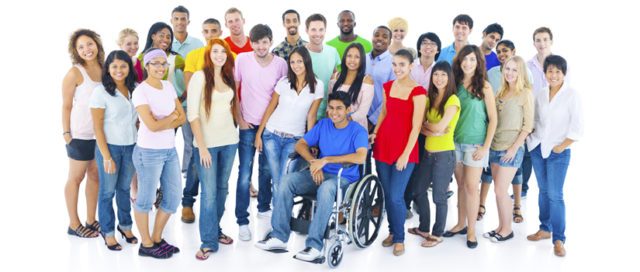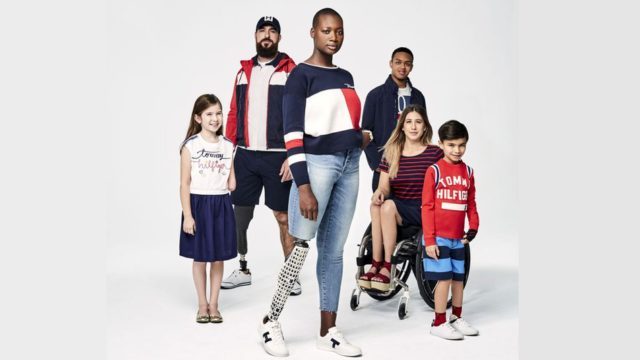Since 2008, the legislative assembly of Costa Rica decreed this day so that as a society we take concrete measures to achieve the full inclusion of these fellow citizens in all areas of the country whether It be the social, economic, cultural, sports, or political sectors.
In Costa Rica the last population census shows that 10.8% of the population coexists with some kind of disability, and although progress has been made both by the state and by civil society in fully addressing the situation, there are still many objectives to be achieved for the complete incorporation of these compatriots so they can achieve the maximum of their potential.
On the part of the State, among the advances that Costa Rica already has achieved, is the ratification of the Convention on the Rights of Persons with Disabilities (Law 8661 of August 19, 2008), and more recently the Law for the Disabled has been enacted. Also, the Law of Promotion of the Personal Autonomy of Persons with Disabilities (Law 9379 of August 18, 2016) and the Law of Creation of the National Council of Persons with Disabilities, in addition to the establishment in the Agenda 2030 and the Sustainable Development Goals, the commitment of “Not Leaving Anyone Behind”.
On the international level
The United Nations Convention on the Rights of Persons with Disabilities is the international treaty that seeks to guarantee a basic level of human rights for people with disabilities throughout the world.
These people constitute a disproportionately large number of the poor in the world. The United Nations estimates that 2 billion people around the world suffer from some type of physical or mental disability.
They are looking to create accessibility guidelines internationally, to guarantee them equal access to all opportunities and contribute to eliminate the obstacles that impede their full development and provide them with the tools and services they need to live a healthy and productive life
Do not see others as different
It is natural to meet someone with a disability and imagine their discomfort or limitations and wants to provide assistance. However, standing on their own as much as possible is often one of the ways that people with disabilities feel empowered.

As Stephen Hawking said: “My advice to other people with disabilities would be, concentrate on what your disability DOES NOT prevent you from doing well, and do not regret the things that it prevents you from doing. Never disabilitate your spirit”.
Sometimes it is difficult to know how to behave with people who have certain disabilities. We must assume that the right thing to do is focus any interaction from a place of dignity and this means offering honor and respect as the most productive approach to treating with them, just in the same way you would with any other person. Let them lead the way by defining how and when help will be appreciated.
Above all, interacting appropriately with people with disabilities comes from not making assumptions, but gradually, coming to interact with them and know them better. Discover how and in what way people themselves appreciate the compensation required by their limitations.
Semantics does matter, and much
What makes humanity great is the respect and acceptance that we are all different. And as biological entities, we are imperfect and must complement and not antagonize each other.
We can reflect on this point to commemorate the day of people with “disability” and place this term between parenthesis precisely because the way we express ourselves of differences with our peers tells us how our societies can evolve towards higher stages of spiritual greatness.
Just a short time ago, the term to refer to this group of people was “handicapped” and people used it without stopping to think what they really meant when they expressed themselves with this term. Actually, “handicapped” means “not capable”. Is this the way you should refer to another person?
If we put ourselves to think carefully, every human being in a stage of his life from his conception until his death goes through one or more periods where their functions and capabilities are not what we could call optimal or self-sufficient, be it physical, mental or emotional.
So for nothing, it is acceptable to have used the term “handicapped”. But it turns out that the expression currently used in many places is “disabled”, which is still totally discriminatory because it means “with less ability” and so this is with respect to whom? Because it has been proven time and again that so-called “disabled” people have the same or superior abilities in many fields with respect to those that supposedly do not fall into that categorization.
Of course, it could be understood that what is sought by many people and institutions with the categorization of “disabled” is to provide better care and support to those members of our society who by some specific characteristic of their bio-psycho-social being could require special or additional support.
But that is why it is proposed that we continue to promote by all means at our disposal, the diffusion of the proper and respectful way of expressing ourselves to refer to this valuable segment of our population and it is referring to them as “PEOPLE WITH FUNCTIONAL DIVERSITY”. It is just the way to express ourselves towards them more justly and morally more advanced.

Regardless of the form or functionality of a person’s body and mind, we all share the human experience. There is more common ground among all human beings and when we serve other people more than we serve ourselves, we can learn to treat all people with dignity.
